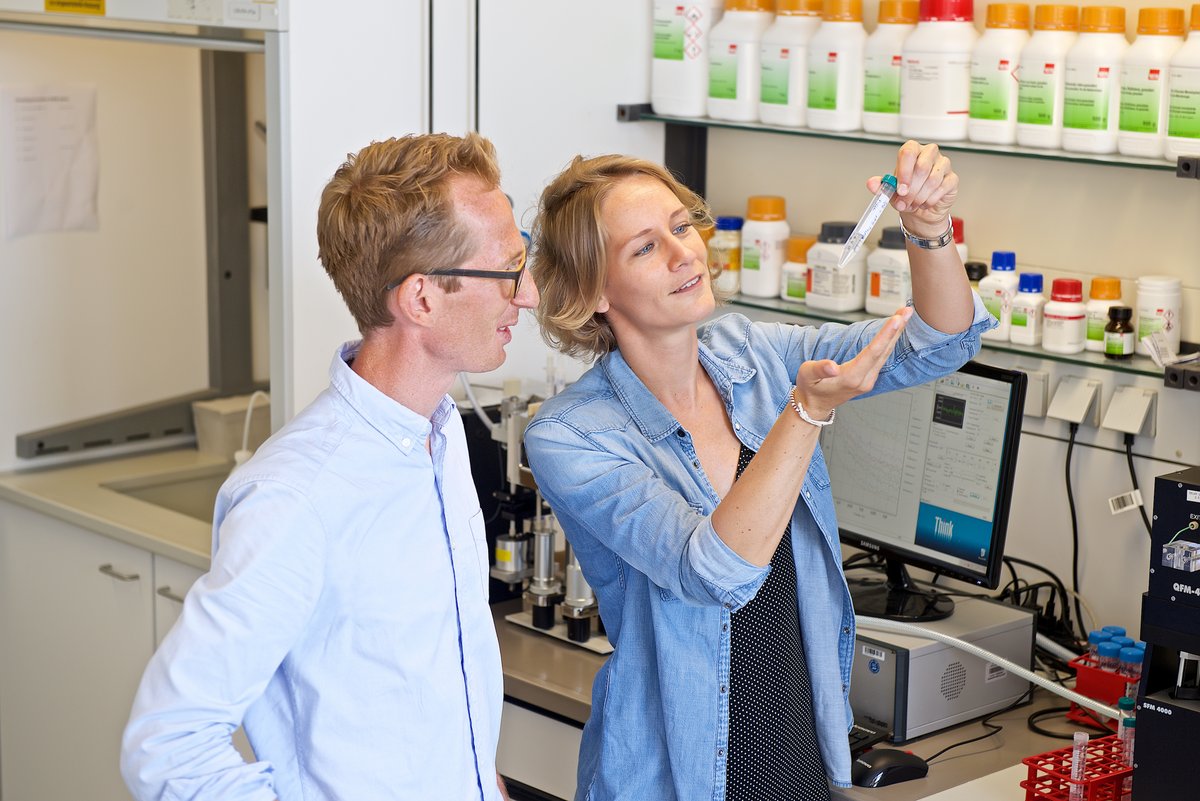Structural information is essential to gaining understanding of biological processes. Specifically, we need structural information with atomic resolution of complex biological molecules, right as these processes happen. Solid-state Nuclear Magnetic Resonance (NMR) spectroscopy is in principle very well suited to tackle this problem, but is lacking one essential thing: sensitivity.
In our group we develop a method called Dynamic Nuclear Polarization (DNP), which can enhance the sensitivity of NMR by two to three orders of magnitude. In DNP, the NMR sample is frozen in a glassy matrix doped with stable radicals or “polarizing agents”. High-power irradiation with microwaves transfers the high electron polarization to the nuclei and enhances their NMR signal.
We aim to understand the underlying physical principles of DNP using a combination of theory and experiment. And, of course, we aim to improve the DNP method, to obtain ever higher NMR sensitivity. Currently, we are exploring a new and exciting form of DNP, in which microwave irradiation is applied to the NMR sample in pulses, and not continuously as in standard DNP methods. This new form of DNP could prove itself particularly useful in high-resolution magic-angle spinning (MAS) NMR.

